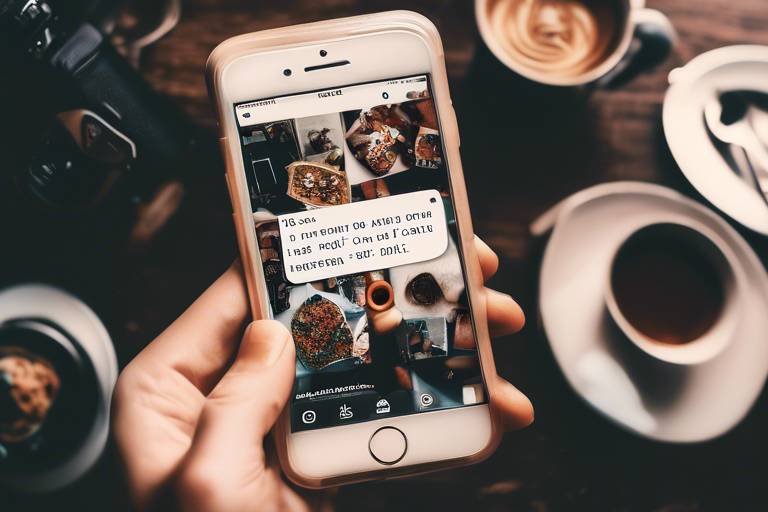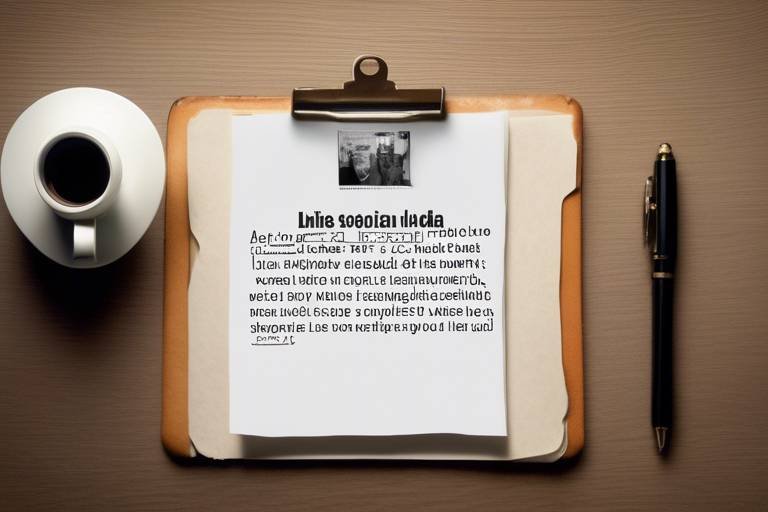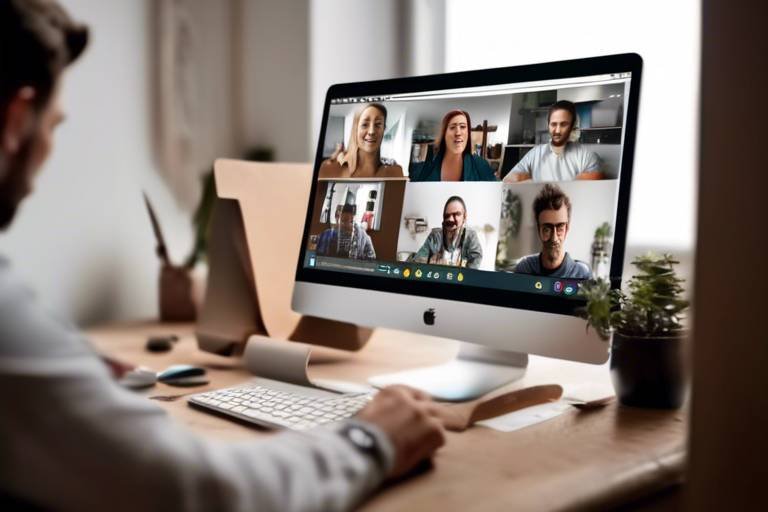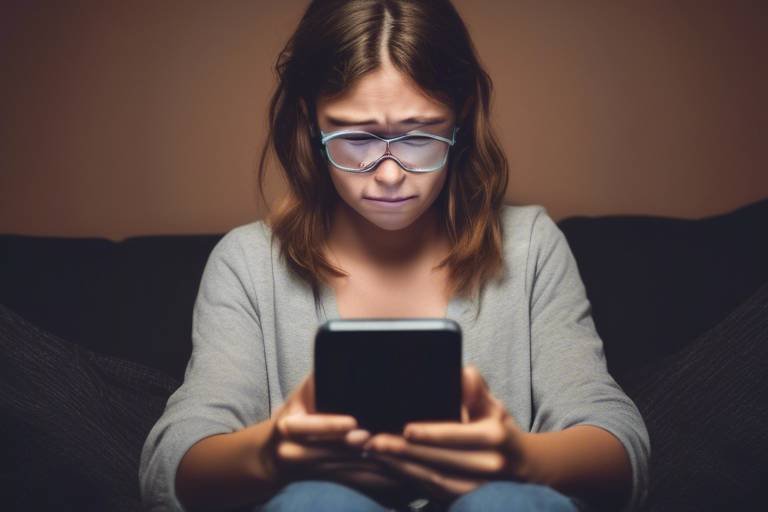Are You Oversharing Your Life on Instagram?
In today's digital age, Instagram has become a canvas for many to paint their lives, showcasing everything from daily meals to life milestones. But, have you ever paused to think about whether you're oversharing? This phenomenon is more common than you might think, and it raises questions about personal privacy, mental health, and our relationships with others. As we scroll through our feeds, we often see friends and influencers sharing every little detail of their lives, but where do we draw the line? In this article, we will explore the implications of oversharing, the psychological impacts it can have, and provide some practical tips for maintaining a balanced online presence that protects your privacy while still allowing you to connect with others.
Understanding what constitutes oversharing on social media is crucial. It varies significantly from person to person, influenced by factors such as cultural background, personal comfort levels, and the context of the sharing. For some, sharing a photo of their breakfast might seem innocent, while for others, it could feel like a breach of privacy. Oversharing can be defined as sharing too much personal information—details that may be better kept private. This can include anything from intimate relationship details to daily struggles. The challenge lies in recognizing where your boundaries are and respecting those of others. It’s essential to consider whether your posts are contributing positively to your life or if they’re merely seeking validation from others.
Oversharing can have significant psychological effects, including feelings of anxiety and depression. When people share too much, they often open themselves up to judgment and criticism. The emotional toll of sharing personal experiences can lead to a cycle of self-doubt and insecurity. The need for self-awareness in online interactions cannot be overstated. Are you posting because you genuinely want to share, or are you seeking approval? This distinction is vital for maintaining mental well-being.
Many users seek validation through likes and comments, which can lead to oversharing. The moment you hit 'post,' you might find yourself anxiously refreshing your feed, waiting for the likes to roll in. This behavior can create a dependency on social media approval, which in turn impacts self-esteem. When the likes don’t come in as expected, it can lead to feelings of inadequacy. It's essential to remember that your worth isn't measured by your social media engagement.
Social media is often a highlight reel, showcasing the best moments of people's lives. This can lead to social comparison, where users measure their lives against the curated experiences of others. Oversharing can exacerbate feelings of inadequacy and jealousy, as individuals may feel their lives don’t measure up to what they see online. It’s a slippery slope; the more you see, the more you feel you need to share to keep up, leading to a never-ending cycle of comparison.
The fear of missing out, or FOMO, can drive individuals to share excessively. This fear often leads to impulsive posting, where users share moments in real-time rather than taking a step back to consider whether it’s appropriate. This behavior can create a cycle of oversharing, where the need to stay relevant overshadows the importance of privacy and personal reflection. Are you sharing because you want to, or because you feel you have to?
Oversharing raises significant privacy issues. Sharing personal information online can expose individuals to risks such as identity theft, stalking, or unwanted attention. It’s crucial to understand the potential consequences of sharing sensitive information. Protecting your digital footprint is not just about adjusting privacy settings; it’s about being mindful of what you put out into the world. Consider the long-term implications of your posts and whether they truly reflect who you are.
Establishing boundaries is essential to mitigate oversharing. It’s important to find a balance between sharing your life and maintaining privacy. Setting clear guidelines for what you’re comfortable sharing can help you navigate your online presence more effectively. Ask yourself: What do I want to share, and why? This self-reflection can lead to a healthier relationship with social media.
Curating content can help manage what is shared online. Instead of posting everything that comes to mind, take the time to select content that reflects your life without oversharing. Think of it as creating a highlight reel that showcases your best moments while keeping the more personal aspects private. This approach not only protects your privacy but also allows you to present a more polished version of yourself online.
Mindful engagement on social media can significantly reduce oversharing. Before hitting that 'post' button, take a moment to reflect on whether your content is meaningful and appropriate. Consider the potential reactions from your audience. Are you sharing for the right reasons? Practicing intentional posting can help you cultivate a more positive online presence.
- What is oversharing on social media? Oversharing refers to the act of sharing too much personal information that may be better kept private.
- How can I avoid oversharing? Establish clear boundaries for what you’re comfortable sharing, and practice mindful engagement before posting.
- What are the psychological impacts of oversharing? Oversharing can lead to feelings of anxiety, depression, and a decreased sense of self-esteem due to the need for validation.
- Why do people overshare? Many individuals overshare due to the desire for social validation, fear of missing out, or the influence of social comparison.

The Nature of Oversharing
Understanding what constitutes oversharing on social media is crucial in today's digital age. With platforms like Instagram allowing users to share snippets of their lives at the touch of a button, the line between sharing and oversharing can often become blurred. So, what exactly does oversharing mean? It generally refers to the act of divulging too much personal information, whether it be about your daily life, relationships, or emotions, in a public or semi-public forum. This can include anything from posting every meal you eat to sharing intimate details about your personal struggles.
Every user has different thresholds for what they consider private. For some, sharing a photo of their vacation is perfectly acceptable, while others might feel uncomfortable even posting a picture of their pet. This variance is influenced by numerous factors, including cultural background, personality type, and even the context in which the social media platform is being used. Ultimately, the nature of oversharing is subjective, and what might seem like harmless fun for one person could be viewed as excessive or inappropriate by another.
In a world where social media is often used as a highlight reel, it’s essential to understand the implications of oversharing. When users continuously post personal details, they may inadvertently invite judgement, criticism, or unwanted attention. This can lead to feelings of vulnerability and exposure, making it imperative for individuals to set their own boundaries. Here are some key aspects to consider:
- Context Matters: The same post might be acceptable in one context but frowned upon in another. For example, sharing a moment of joy with friends might be welcomed, while airing grievances about a relationship could be seen as oversharing.
- Audience Awareness: Knowing who is viewing your content can help dictate what is appropriate to share. A post intended for close friends may not be suitable for a wider audience.
- Digital Footprint: Every piece of information shared online contributes to your digital footprint, which can have lasting implications on your privacy and reputation.
As we navigate the complex landscape of social media, it's vital to be mindful of our sharing habits. Oversharing can lead to unintended consequences, affecting not only our personal lives but also our mental and emotional well-being. By being aware of what we share and why we share it, we can cultivate a more balanced online presence that reflects our true selves without compromising our privacy.
Q: What is oversharing on social media?
A: Oversharing refers to the act of sharing too much personal information on social media platforms, which can include intimate details about one’s life, relationships, or emotions.
Q: Why do people overshare?
A: People may overshare for various reasons, including the desire for validation, connection, or simply the habit of documenting their lives in detail.
Q: How can I avoid oversharing?
A: To avoid oversharing, consider setting personal boundaries, curating the content you share, and engaging mindfully with your audience.
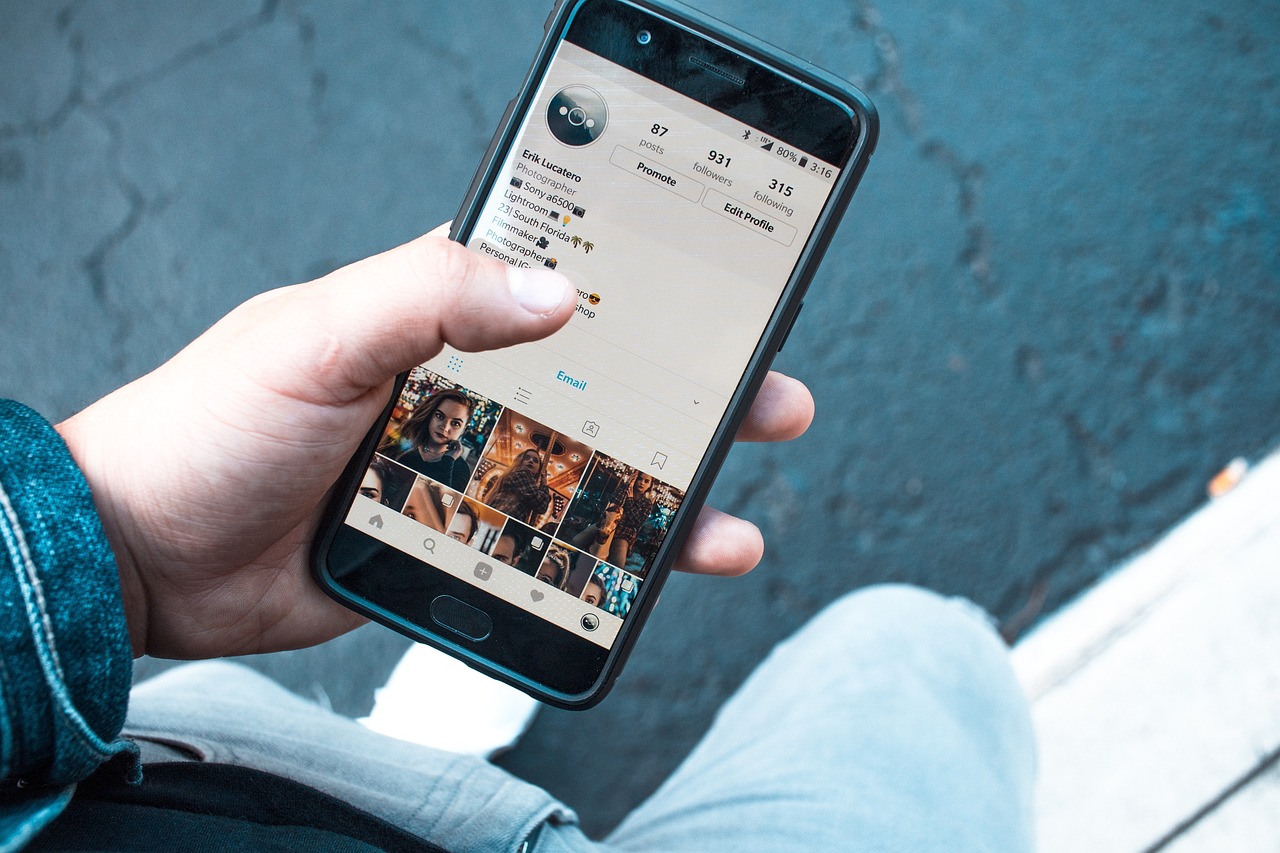
Psychological Impacts of Oversharing
In today's digital age, the lines between sharing and oversharing can often blur, leading to profound psychological impacts on individuals. Oversharing on platforms like Instagram can trigger a cascade of emotions, from anxiety to depression. When users flood their feeds with personal details, they may unknowingly expose themselves to judgment and criticism, which can heighten feelings of vulnerability. The act of sharing intimate moments, while seemingly harmless, can often feel like standing on a stage, under the spotlight, with an audience ready to critique every move.
One of the most alarming aspects of oversharing is its impact on self-esteem. Many users find themselves in a constant battle for validation through likes and comments. This pursuit can lead to an unhealthy cycle where individuals feel compelled to share more personal information just to receive that fleeting moment of approval. The emotional toll this can take is significant; instead of feeling empowered by their posts, users may find themselves feeling inadequate when the likes don’t roll in as expected. It’s a vicious cycle that can leave one feeling more isolated than ever.
Let’s dig a little deeper into the quest for validation. For many, social media serves as a barometer for self-worth. When users receive positive feedback on their posts, it can temporarily boost their mood; however, the opposite is also true. A lack of engagement can lead to feelings of rejection and disappointment. To illustrate this, consider the following:
- Positive Feedback: Likes and comments can lead to a temporary sense of happiness.
- Negative Feedback: Lack of engagement can trigger feelings of worthlessness.
This constant need for external validation can create a dependency that is hard to break. Users may find themselves oversharing just to keep the likes coming, often at the expense of their mental health.
Another psychological impact of oversharing is the tendency towards social comparison. Instagram is a highlight reel of everyone’s best moments, and when users overshare, they often contribute to an unrealistic portrayal of life. This can lead others to compare their everyday experiences with the curated lives of their peers, exacerbating feelings of inadequacy and jealousy. It’s like watching a movie where everyone else is the star, and you’re just a background character. The more we share, the more we fuel this cycle of comparison, which can be detrimental to our mental well-being.
The Fear of Missing Out, or FOMO, is another driving force behind oversharing. This fear compels individuals to share excessive details about their lives, often in a bid to keep up with friends and trends. It’s as if there’s an invisible pressure to document every moment, lest one feels left out. This behavior not only leads to oversharing but can also create a sense of anxiety about not living up to the perceived standards set by others. The cycle continues as users feel the need to post more frequently to combat these feelings, leading to an overwhelming digital presence.
As the psychological impacts of oversharing unfold, it’s crucial to recognize the associated privacy concerns. Sharing personal information can expose users to various risks, including identity theft and cyberbullying. When individuals overshare, they often forget that their digital footprint is permanent. The importance of protecting one’s personal information cannot be overstated; it’s essential to be mindful of what is shared online. After all, once something is posted, it can be challenging to take it back.
In conclusion, while sharing moments on Instagram can foster connections, it’s vital to be aware of the psychological impacts of oversharing. From the quest for validation to the dangers of social comparison and FOMO, users must navigate these waters carefully. By developing a self-awareness and understanding the implications of their online behavior, individuals can enjoy the benefits of social media without compromising their mental health.
- What is oversharing? Oversharing refers to the act of sharing excessive personal information on social media platforms, which can lead to negative consequences.
- How can I tell if I am oversharing? If you find yourself feeling anxious or vulnerable after posting, or if you seek validation through likes and comments, you may be oversharing.
- What are some signs that oversharing is affecting my mental health? Signs include increased anxiety, feelings of inadequacy, and a constant need for validation from others.
- How can I maintain privacy while using social media? Consider curating your content, engaging mindfully, and setting clear boundaries about what you share online.
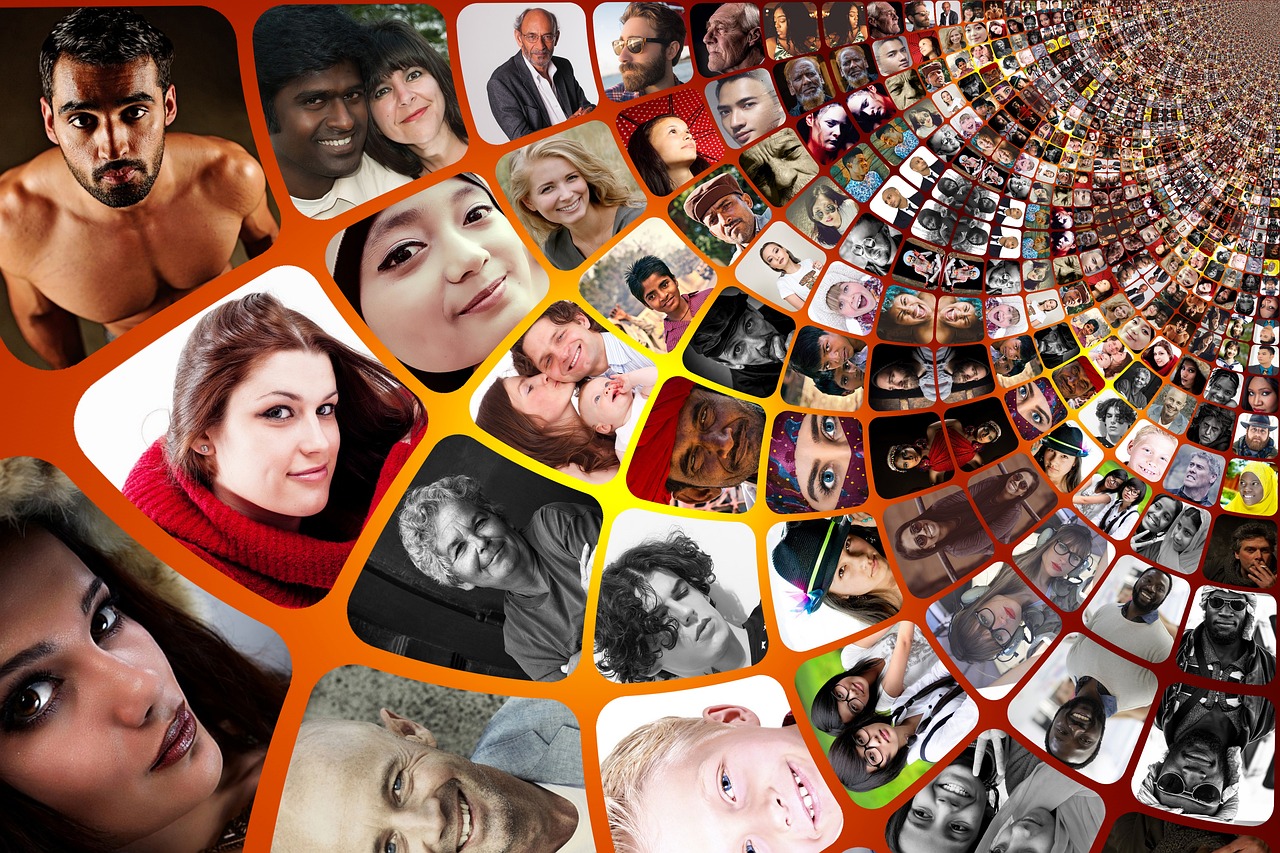
Validation and Self-Esteem
In today's digital world, the quest for validation through social media has become almost ubiquitous. Many users find themselves caught in a cycle where the number of likes, comments, and shares becomes a measure of their self-worth. It's like a modern-day popularity contest, where the stakes are high and the rewards often feel fleeting. But what happens when the need for online approval spirals out of control? The answer is simple yet profound: it can lead to oversharing.
When individuals post intimate details about their lives, they often do so in hopes of receiving affirmation from their peers. This can create a dangerous loop where the more they share, the more they feel they need to share to maintain that validation. The emotional toll of this behavior can be significant, as it may lead to feelings of inadequacy if the anticipated response doesn’t materialize. Imagine standing in a room full of people, shouting for attention, only to be met with silence. That’s the reality many face when their posts don’t garner the expected reactions.
Furthermore, the pressure to present a curated, glamorous life can push individuals to overshare personal struggles or achievements in a bid to appear relatable or aspirational. This can lead to a distorted self-image, where one's worth is tied to social media metrics rather than genuine connections. In essence, the pursuit of likes can become a double-edged sword, providing temporary satisfaction while simultaneously eroding self-esteem.
It's essential to recognize that this cycle of seeking validation can have broader implications on mental health. Users may experience heightened anxiety and depression, particularly if they feel their online persona doesn't match their real-life experiences. The fear of not measuring up can prompt individuals to share more than they should, often leading to regret. In this way, social media can transform from a tool for connection into a source of distress.
To combat these feelings, it's crucial for users to practice self-awareness and reflect on their motivations behind sharing content. Here are some questions to consider before hitting that 'post' button:
- Am I sharing this for validation, or is it a genuine moment I want to capture?
- How might this post affect my mental well-being?
- Would I feel comfortable sharing this with someone face-to-face?
By taking a step back and evaluating the reasons behind their posts, users can cultivate a healthier relationship with social media. Instead of seeking validation through likes, they can focus on building authentic connections that enhance their self-esteem without the need for constant online approval. In doing so, they not only protect their mental health but also create a more meaningful online presence that reflects their true selves.
- What is oversharing? Oversharing refers to sharing excessive personal information on social media platforms, often leading to privacy concerns and emotional distress.
- How can I tell if I'm oversharing? If you find yourself feeling anxious or regretful about your posts or if you frequently seek validation through likes and comments, you may be oversharing.
- What are the risks of oversharing? Risks include potential privacy violations, emotional distress, and negative impacts on self-esteem and mental health.
- How can I maintain a healthy online presence? Focus on curating content mindfully, engaging intentionally, and setting boundaries regarding what you choose to share.

Social Comparison
In the age of social media, the phenomenon of has become more prevalent than ever. When scrolling through Instagram, it’s hard not to notice the seemingly perfect lives of others—luxurious vacations, flawless selfies, and enviable relationships. This constant exposure can create a toxic environment where users feel compelled to measure their worth against the curated highlights of their peers. But what is the real cost of this comparison?
Many individuals find themselves caught in a cycle of inadequacy and jealousy. As they compare their everyday lives to the highlight reels presented by others, feelings of low self-esteem can arise. For instance, you might see a friend’s post about their latest adventure and feel a pang of envy, thinking, “Why can’t I have that?” This can lead to a downward spiral where you not only feel bad about your own life but also start to overshare in an attempt to compete or gain validation.
Moreover, the nature of social media encourages this behavior. Algorithms are designed to promote content that garners more engagement, which often means people are posting more extreme or attention-grabbing content. This can set unrealistic standards that others feel pressured to meet, creating a vicious cycle of comparison. When everyone is trying to outdo each other, it can feel like a never-ending race that leaves little room for authenticity.
But how can we break free from this damaging cycle? Here are a few strategies to consider:
- Limit Exposure: Consider unfollowing accounts that make you feel inadequate. Curate your feed to include positive influences that inspire rather than compare.
- Practice Gratitude: Focus on what you have rather than what others portray. Keeping a gratitude journal can help shift your mindset.
- Engage in Real Life: Spend more time with friends and family offline. Real-life interactions can provide a more balanced perspective on life.
Ultimately, it’s essential to remember that what we see online is often just a fraction of the full story. Everyone has struggles, and behind those perfect posts are real-life challenges that are rarely shared. By being mindful of our consumption and engagement on social media, we can create a healthier relationship with ourselves and with others.
Q: How can I recognize if I'm oversharing on Instagram?
A: If you find yourself feeling anxious or vulnerable after posting, or if you're sharing details that you wouldn't typically share in person, it might be a sign of oversharing.
Q: What are some signs that I am affected by social comparison?
A: Signs include feelings of jealousy, low self-esteem, or the urge to post more frequently to gain likes and validation. If you’re feeling worse about yourself after using Instagram, that’s a red flag.
Q: How can I create a healthier social media experience?
A: Curate your feed, limit your time on the platform, engage mindfully, and focus on real-life interactions to foster a healthier balance.
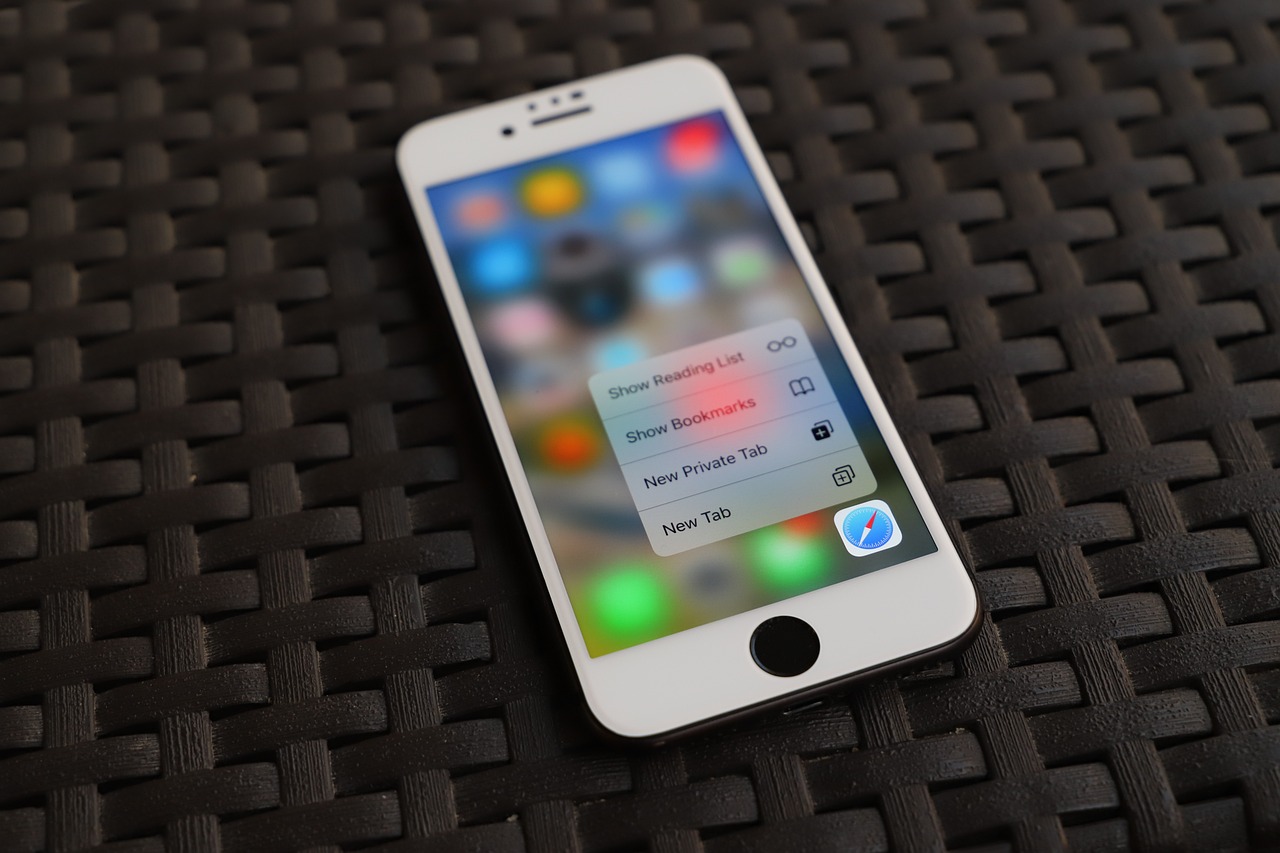
Fear of Missing Out (FOMO)
The Fear of Missing Out, commonly known as FOMO, is a powerful emotion that can drive individuals to share excessively on platforms like Instagram. This phenomenon is rooted in the innate human desire to belong and to be part of something bigger. When scrolling through a seemingly endless feed of friends attending parties, traveling to exotic locations, or simply enjoying life, it’s easy to feel that nagging sensation that we are missing out on something vital. This fear can lead to a cycle of oversharing as individuals try to keep up with the curated lives of others.
FOMO often manifests in social media behavior that prioritizes quantity over quality. Users may find themselves posting updates, photos, or stories not necessarily because they want to share genuine moments, but rather to showcase their own lives in a way that competes with what they see online. This creates a paradox where the very act of trying to connect and share can lead to feelings of isolation and inadequacy. Have you ever felt the need to post something just to prove you’re having a good time? You’re not alone!
Moreover, FOMO can influence our decision-making processes. For instance, when friends plan an outing, the fear of missing out can compel someone to attend, even if they’re not particularly interested. This behavior often extends to social media, where the pressure to document every experience can overshadow the enjoyment of the moment itself. Instead of being present, individuals may find themselves preoccupied with capturing the perfect shot or crafting the ideal caption. In this way, FOMO not only affects how we share but also how we experience life.
To illustrate the impact of FOMO, consider the following table that highlights some common behaviors associated with this phenomenon:
| FOMO Behavior | Impact on Sharing |
|---|---|
| Posting to prove participation | Leads to oversharing and inauthentic content |
| Comparing experiences with others | Increases feelings of inadequacy and jealousy |
| Feeling pressured to respond to events | Can result in attending events for the sake of sharing, not enjoyment |
It's essential to recognize the cycle of FOMO and its potential to drive oversharing. By acknowledging these feelings, individuals can begin to take steps towards a more balanced approach to social media. Instead of succumbing to the urge to share every moment, consider taking a step back and reflecting on what truly matters. Are you sharing for the right reasons? Or are you simply trying to keep up with the Joneses? This self-awareness can be a game changer in fostering a healthier relationship with social media.
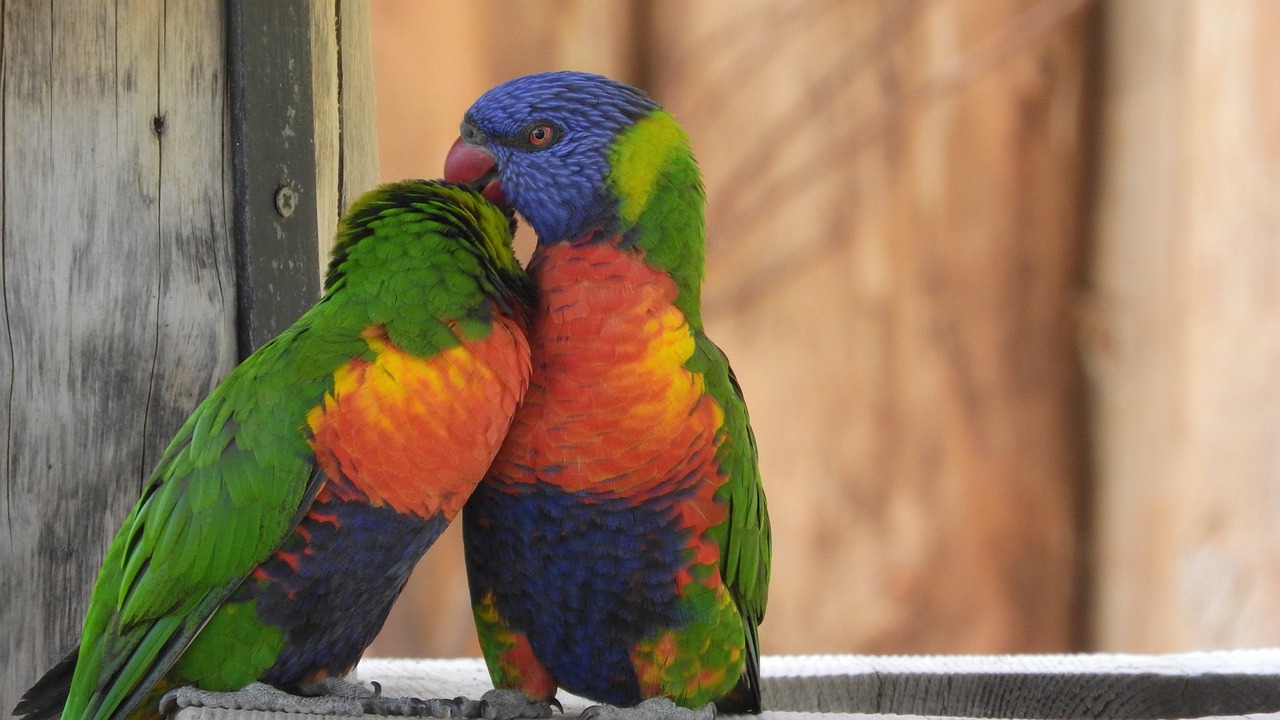
Privacy Concerns
In today's digital age, the act of sharing our lives on platforms like Instagram can often feel like a double-edged sword. On one hand, it allows for connection and community, but on the other, it opens the door to significant privacy risks. When we overshare, we may unintentionally expose ourselves to various threats, ranging from identity theft to unwanted attention from strangers. It's essential to recognize that not everything in our lives is meant for public consumption. Consider this: every photo, every status update, and every story shared can leave a digital footprint that is challenging to erase.
One of the primary concerns with oversharing is the potential for data exploitation. Companies and advertisers often use personal information shared on social media to tailor ads and marketing strategies. This means that your preferences, habits, and even your location can be tracked and used without your explicit consent. Furthermore, it’s not just companies that can misuse your information; individuals with malicious intent can also take advantage of the personal details you share.
To illustrate the gravity of these privacy concerns, let’s look at some statistics:
| Privacy Concern | Percentage of Users Affected |
|---|---|
| Identity Theft | 30% |
| Cyberbullying | 20% |
| Stalking | 15% |
| Data Exploitation | 40% |
As shown in the table, a significant number of users face various privacy issues due to oversharing. The alarming truth is that once something is posted online, it can be challenging to control who sees it or how it's used. Even with privacy settings in place, there’s always a risk that your information can be shared further than you intended.
Moreover, oversharing can lead to a sense of vulnerability. When you share intimate details about your life, you may feel exposed, which can lead to anxiety and discomfort. It's crucial to find a balance between sharing your experiences and maintaining your privacy. Ask yourself: “Is this something I would want everyone to know?” If the answer is no, it might be best to keep that information to yourself.
In addition to personal safety, oversharing can also impact your relationships. Friends and family may feel uncomfortable or overwhelmed by too much personal information. This can create a disconnect, as they may not know how to respond or feel pressured to share equally personal details in return. Establishing boundaries around what you share can help foster healthier interactions both online and offline.
In summary, while Instagram and other social media platforms offer incredible opportunities for connection, they also come with substantial privacy concerns. Being mindful about what you share and understanding the potential ramifications can help you enjoy the benefits of social media without compromising your safety and well-being.
- What is oversharing? Oversharing refers to sharing too much personal information on social media platforms, which can lead to privacy risks and emotional distress.
- How can I protect my privacy on Instagram? You can protect your privacy by adjusting your privacy settings, being selective about what you share, and avoiding posting sensitive information.
- What are the signs that I am oversharing? If you frequently feel anxious about your posts or receive negative feedback from friends, it may be a sign that you are sharing too much.
- Can oversharing affect my mental health? Yes, oversharing can lead to feelings of anxiety, low self-esteem, and vulnerability due to the public nature of social media.

Building Healthy Boundaries
In a world where our lives are increasingly intertwined with social media, establishing healthy boundaries is more crucial than ever. Oversharing can lead to a myriad of issues, from privacy concerns to emotional distress. So, how do we create boundaries that protect our personal lives while still engaging with our online communities? It starts with self-awareness and intention.
First and foremost, it's vital to recognize that not every moment of your life needs to be documented and shared. Ask yourself, "Is this something I want to share, or is it something I feel pressured to share?" This simple question can help you sift through the noise and focus on what truly matters. It’s about finding that sweet spot where you can share your experiences without feeling exposed.
One effective strategy for maintaining these boundaries is content curation. This means being selective about what you post. Consider creating a mental checklist of what constitutes share-worthy content. For example:
- Does this content reflect my values?
- Will this post contribute positively to my online presence?
- Am I comfortable with the potential reactions from my audience?
By using this checklist, you can filter out unnecessary posts that may lead to oversharing. Remember, it’s perfectly okay to keep some moments private, allowing yourself to enjoy them without the pressure of social media.
Another crucial aspect of building healthy boundaries is engaging mindfully. This means taking a moment to reflect before hitting that “post” button. Ask yourself how sharing this particular moment might affect you emotionally and socially. Is this a moment you want to share with the world, or would it be better kept to yourself? Mindful engagement encourages you to think critically about your online interactions.
Additionally, consider the concept of a digital detox. Taking breaks from social media can help you reconnect with reality and assess your online habits. During these breaks, you might find that you miss the platform less than you thought, or you might discover new hobbies that don’t involve a screen. This can be a refreshing way to reset your boundaries and refocus your priorities.
Lastly, remember that it’s okay to set privacy settings on your accounts. Most social media platforms allow you to customize who can see your posts. Use these features to your advantage! By restricting access to your content, you can share more freely without the fear of judgment from strangers or acquaintances. This way, you can create a safe space for yourself online.
In summary, building healthy boundaries on social media is about being intentional with what you share, engaging mindfully, and utilizing privacy settings. It’s a balancing act, but with a little self-reflection and practice, you can create an online presence that feels authentic and safe.
- What is oversharing? Oversharing refers to sharing too much personal information on social media, which can lead to privacy concerns and emotional distress.
- How can I tell if I'm oversharing? If you often feel anxious or regretful after posting, or if you find yourself sharing details that others might find inappropriate, you may be oversharing.
- What are some signs I need to set boundaries? Signs include feeling overwhelmed by online interactions, receiving negative feedback, or experiencing anxiety related to social media use.
- How do I start building boundaries? Begin by asking yourself reflective questions before posting, curating your content, and utilizing privacy settings on your social media accounts.

Content Curation
In today's digital age, where every moment can be captured and shared within seconds, has emerged as a vital skill for anyone looking to maintain a balanced online presence. It’s not just about what you share, but how you share it. Imagine walking into a gallery filled with art; each piece tells a story, but not every story needs to be told at once. Similarly, your social media feed can be a curated gallery of your life, where you choose the highlights, the important moments, and even the mundane, but with a purpose.
When you think about content curation, consider the following aspects:
- Intentional Selection: Every post should have a reason behind it. Ask yourself, “What do I want to convey with this post?” This helps in filtering out unnecessary oversharing.
- Quality Over Quantity: Instead of posting every little detail, focus on sharing meaningful content. This not only keeps your followers engaged but also reflects your personality in a more profound way.
- Audience Awareness: Think about who will see your posts. Will your friends find this funny? Will your family appreciate this moment? Tailoring your content to your audience can help you maintain a more curated and thoughtful presence.
Moreover, content curation isn’t just about what you post; it also involves editing your digital footprint. Take a moment to review your previous posts. Are there things you’d rather not have public? Perhaps a cringe-worthy selfie from a night out or an overly emotional rant? By regularly assessing your past content, you can ensure that your online persona aligns with how you want to be perceived.
Another essential aspect of content curation is the use of visuals. Images often convey emotions and stories more effectively than words alone. Consider using high-quality photos, engaging videos, or even infographics that encapsulate your experiences succinctly. This approach can make your posts more appealing and reduce the need for lengthy captions or explanations.
Ultimately, the goal of content curation is to create a feed that reflects your true self while also respecting your privacy and the privacy of others. By being intentional about what you share, you can avoid the pitfalls of oversharing and foster a healthier online environment for yourself and your followers. So, the next time you’re about to hit that “post” button, take a breath and ask yourself: “Is this the best version of my story?”
As we navigate through the complexities of social media, remember that content curation is a journey, not a destination. It’s about finding the right balance between sharing and safeguarding your personal space.
- What is content curation? Content curation is the process of selecting, organizing, and sharing relevant content that reflects your interests and values while avoiding oversharing.
- How can I avoid oversharing on social media? Focus on intentional selection of content, prioritize quality over quantity, and be mindful of your audience when posting.
- Why is it important to curate my social media content? Curating your content helps maintain a balanced online presence, protects your privacy, and ensures that your posts reflect your true self.
- Can content curation improve my mental health? Yes, by reducing oversharing and focusing on meaningful interactions, you can alleviate feelings of anxiety and pressure often associated with social media.

Engaging Mindfully
In today's fast-paced digital world, mindful engagement on social media is more crucial than ever. It's easy to get swept up in the moment, posting every detail of our lives without a second thought. But what if we took a step back? What if we paused to consider the impact of our posts before hitting that "share" button? Engaging mindfully means being aware of not just what we share, but also why we choose to share it. This practice helps us maintain a healthy balance between personal expression and privacy.
One effective way to engage mindfully is to ask yourself a few key questions before posting:
- Is this content meaningful to me or my audience?
- Am I sharing this for validation or genuine connection?
- How might this post affect my privacy or the privacy of others?
By reflecting on these questions, we can cultivate a more intentional approach to our social media interactions. Mindful engagement doesn't mean we have to stop sharing entirely; rather, it encourages us to be more selective and thoughtful about what we put out into the world. Think of it as curating a personal gallery of moments that truly represent who you are, rather than a chaotic scrapbook of every fleeting thought or experience.
Moreover, engaging mindfully can also enhance our overall experience on platforms like Instagram. Instead of feeling pressured to post constantly, we can focus on quality over quantity. This shift allows us to create posts that resonate more deeply with our audience, fostering genuine connections and conversations rather than superficial likes.
Another aspect of mindful engagement is self-reflection. After sharing something, take a moment to reflect on how it makes you feel. Did the post bring you joy? Did it create anxiety? This practice can help us identify patterns in our sharing behavior and adjust accordingly. For instance, if you notice that certain types of posts lead to negative emotions, it may be time to rethink your strategy.
In conclusion, engaging mindfully on social media is about creating a space where we can express ourselves authentically while also respecting our boundaries. By being intentional with our sharing, we can enhance our online presence and enjoy a healthier relationship with social media. So, the next time you're about to post, take a moment to pause and reflect. Your digital footprint—and your mental well-being—will thank you.
Here are some common questions related to mindful engagement on social media:
- What is mindful engagement? Mindful engagement refers to the practice of being aware and intentional about what and why we share on social media.
- How can I reduce oversharing? By asking reflective questions before posting and focusing on quality content rather than quantity.
- Does mindful engagement improve my social media experience? Yes, it can lead to more meaningful interactions and a healthier relationship with social media.
Frequently Asked Questions
- What is considered oversharing on Instagram?
Oversharing on Instagram typically refers to posting excessive personal information or intimate details about your life that may not be appropriate for a public audience. This can include sharing sensitive emotions, private moments, or too many updates about your daily life.
- How does oversharing affect mental health?
Oversharing can lead to increased anxiety and depression as individuals may feel vulnerable or exposed. The pressure to maintain a certain online persona can also contribute to feelings of inadequacy and stress, especially when seeking validation through likes and comments.
- Can oversharing impact my relationships?
Yes, oversharing can strain personal relationships. Friends and family may feel uncomfortable with the level of detail shared publicly, leading to misunderstandings or conflicts. It’s essential to maintain boundaries to protect personal connections.
- What are some signs that I might be oversharing?
Signs of oversharing include feeling anxious about your posts, receiving negative feedback, or noticing that you frequently share personal details that others might find inappropriate. If you often seek validation through your posts, it might be time to reassess your sharing habits.
- How can I maintain privacy while using Instagram?
To maintain privacy, consider adjusting your account settings to private, be selective about what you share, and think critically about the potential consequences of your posts. Curating content mindfully can help you strike a balance between sharing and protecting your personal life.
- What strategies can I use to avoid oversharing?
Strategies to avoid oversharing include setting clear boundaries about what you will and won’t share, engaging in self-reflection before posting, and curating content that reflects your life without compromising your privacy. Taking breaks from social media can also help maintain a healthy balance.

